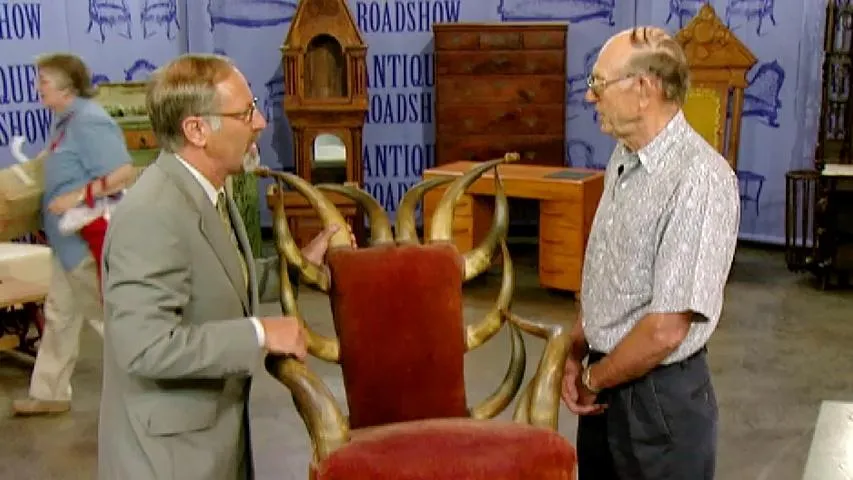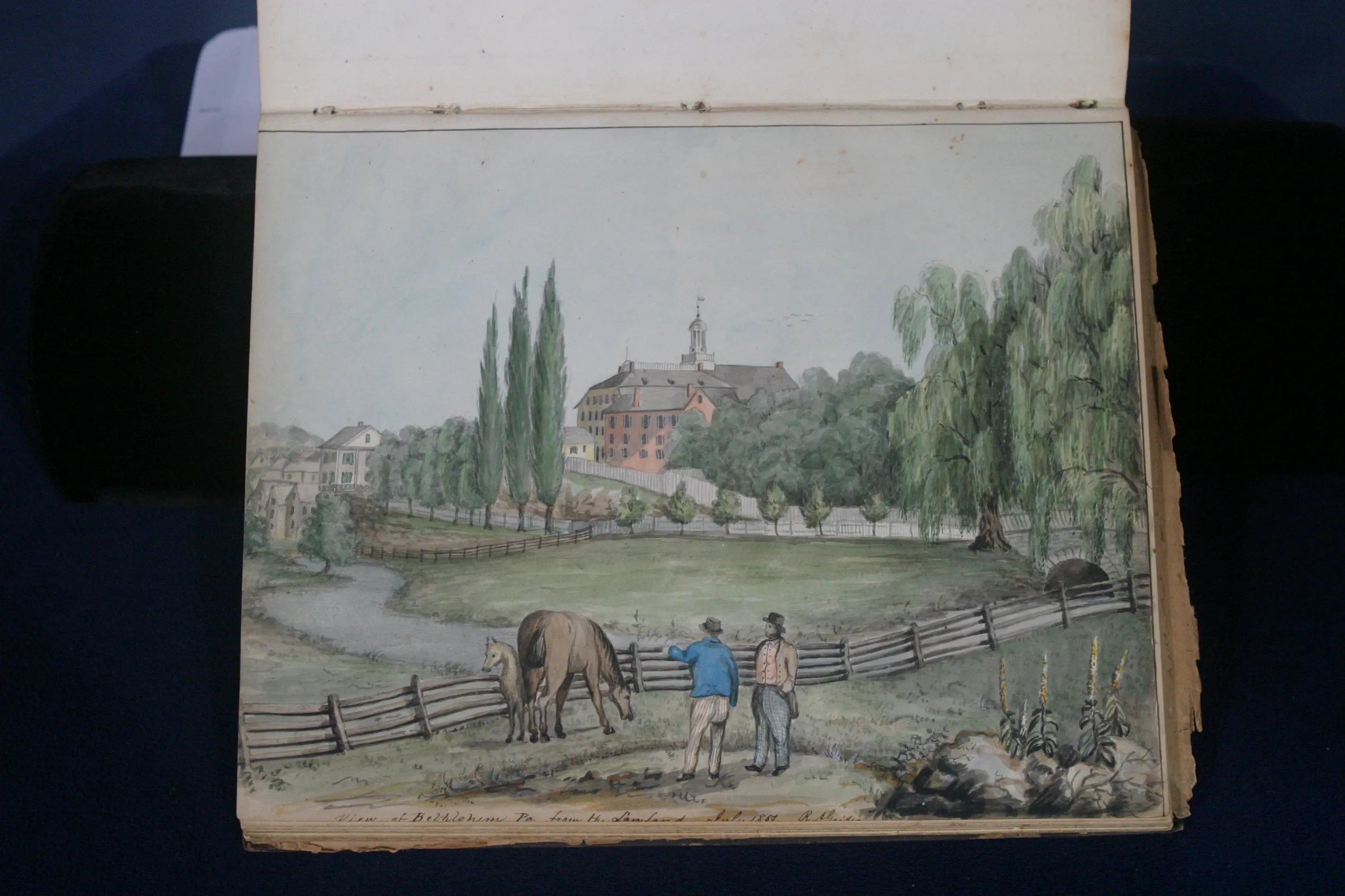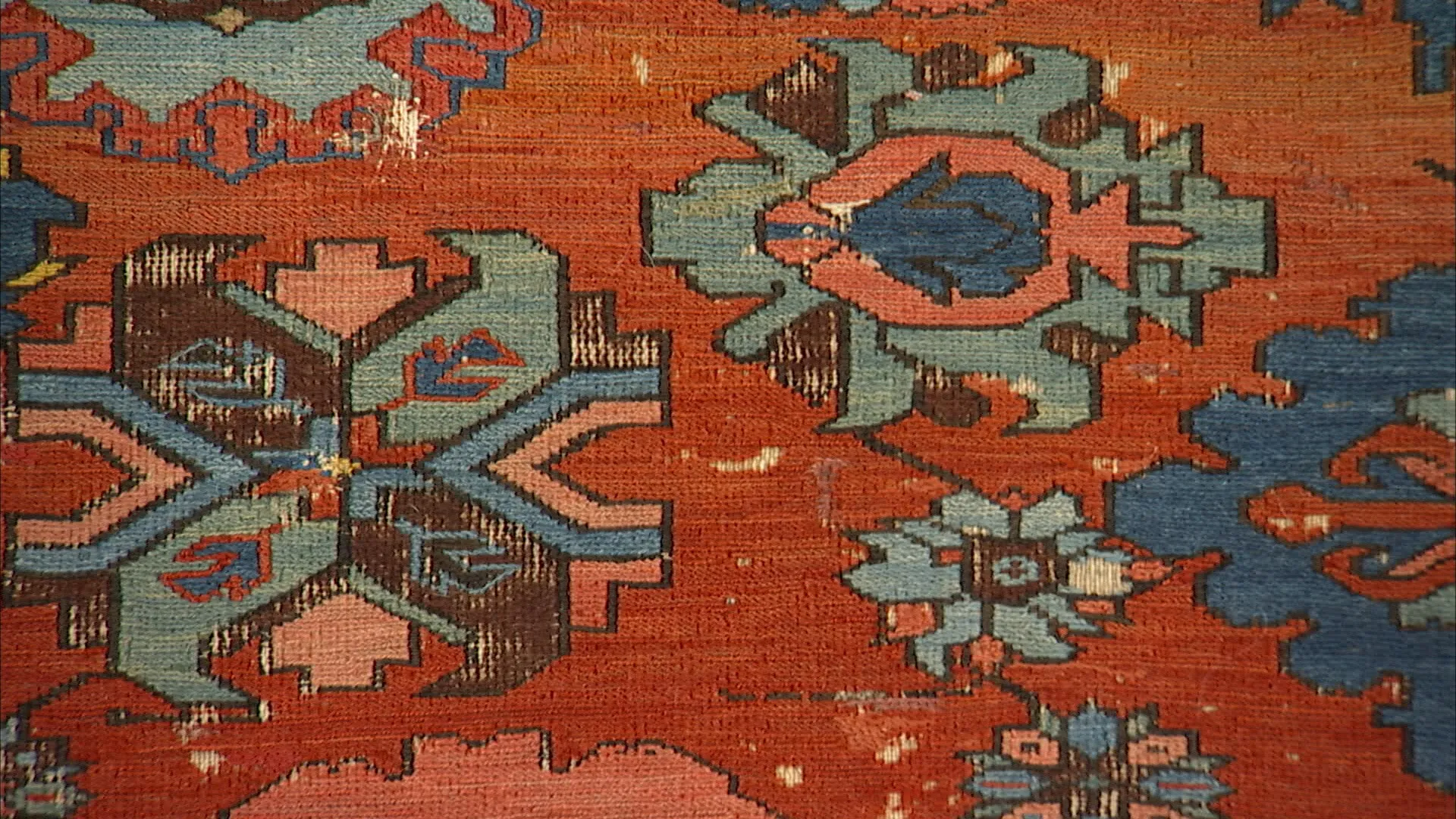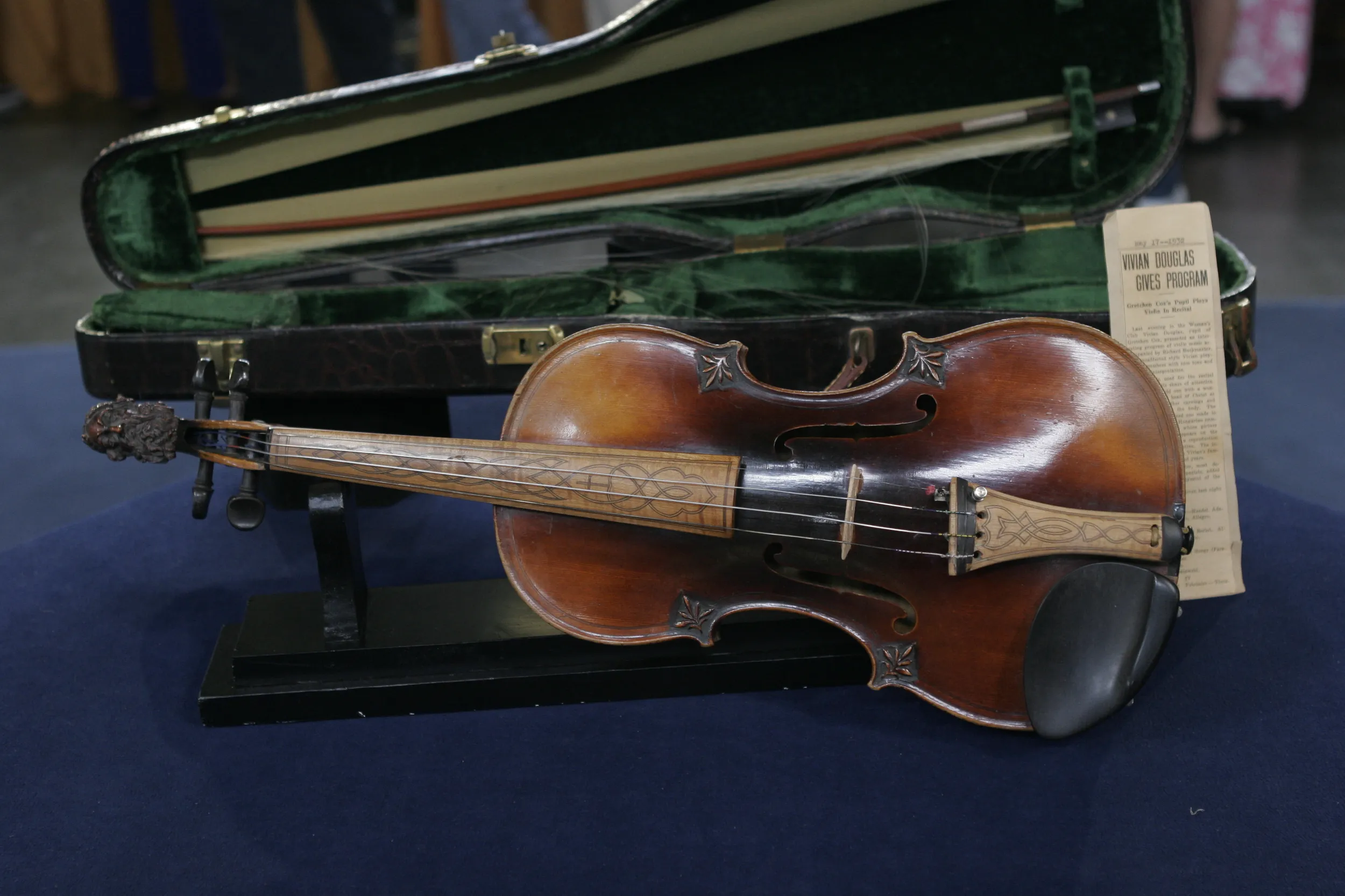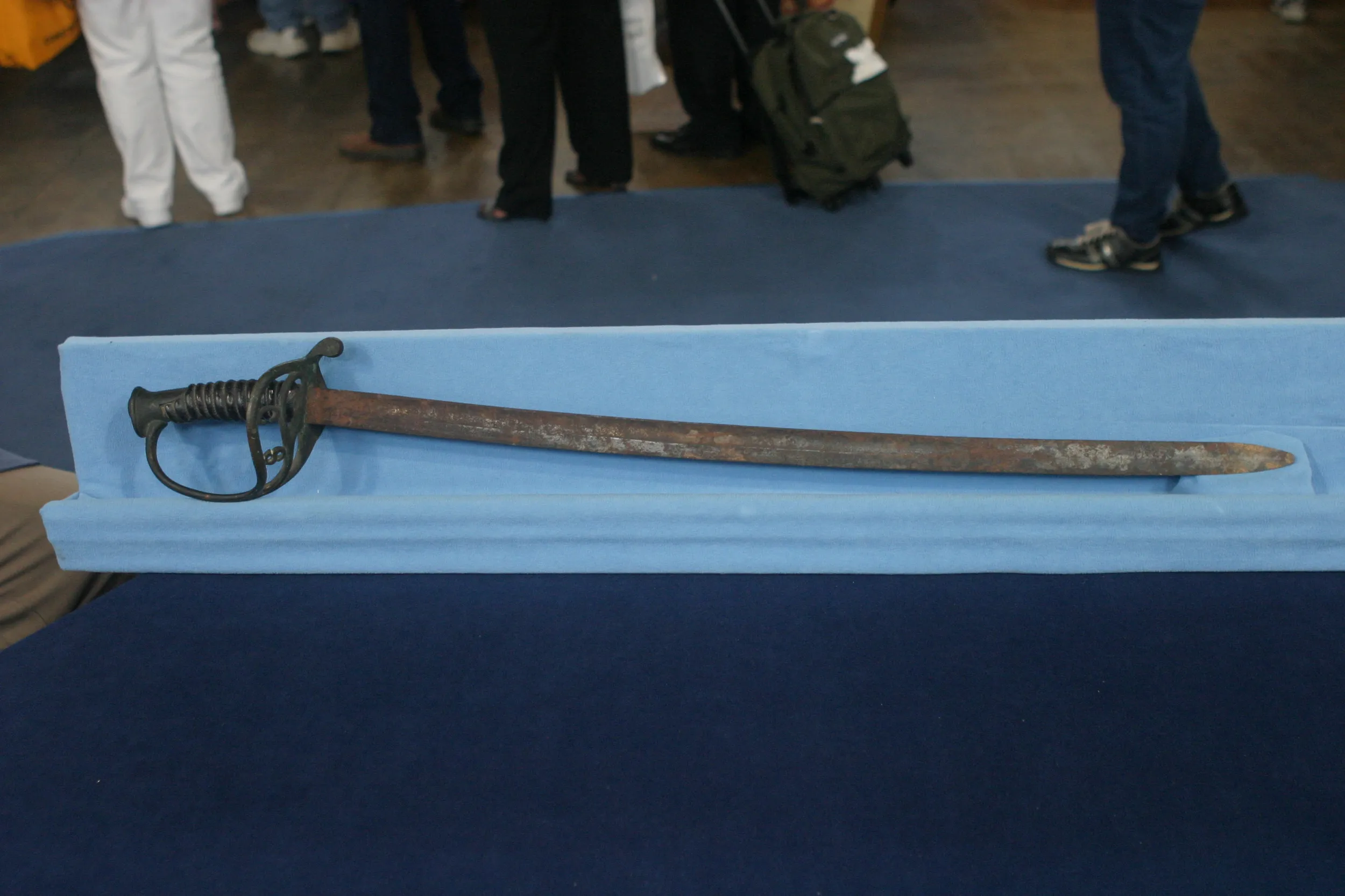GUEST: Well, my father-in-law purchased this in Jerseyville, Illinois, at an antique shop, and he had it for several years. He had four daughters, one of which I had married, and the girls didn't appreciate the chair. They didn't care for it too much. So when my father-in-law passed away in 1973, he had given it to me, because I think they thought it was gaudy or ugly or something like that. But I appreciated the craftsmanship in it.
APPRAISER: Well, believe it or not, over the years we've seen a few of these chairs. I think they're believed to have been made in Texas. Hardly a surprise, right?
GUEST: No, I think they were Texas Longhorns.
APPRAISER: Exactly.
GUEST: Is what I had thought.
APPRAISER: This particular example is especially graceful. The man who made this chair went to great pains to turn these beautiful acorn terminals on the crest rail of the chair. Richard, how old do you think the chair is?
GUEST: I thought it may be in the neighborhood of 100 years old.
APPRAISER: Yeah, that's pretty close. It might even be a bit older than that. it could have been made in the last, probably, quarter of the 19th century. So it's an amazing piece of distinctly American furniture. Now at the time your... the chair was purchased, do you have any idea what was paid for it?
GUEST: He paid $75 for it.
APPRAISER: $75, and did he buy it just because it appealed to him?
GUEST: Well, he had Jersey cows and he had cattle and it appealed to him, so he brought it home.
APPRAISER: So, presumably if the cattle didn't produce, would he show them the chair and say, "You guys better shape up?"
GUEST: Well, he could have possibly. (both laughing)
APPRAISER: Well, at any rate, I think this really is a superior example of its form. It's not a chair for everyone, but I dare say there are collectors of western memorabilia who would very much covet this chair and want to own it. As far as value is concerned, I would think probably in the area of about $2,000 or $2,500.

